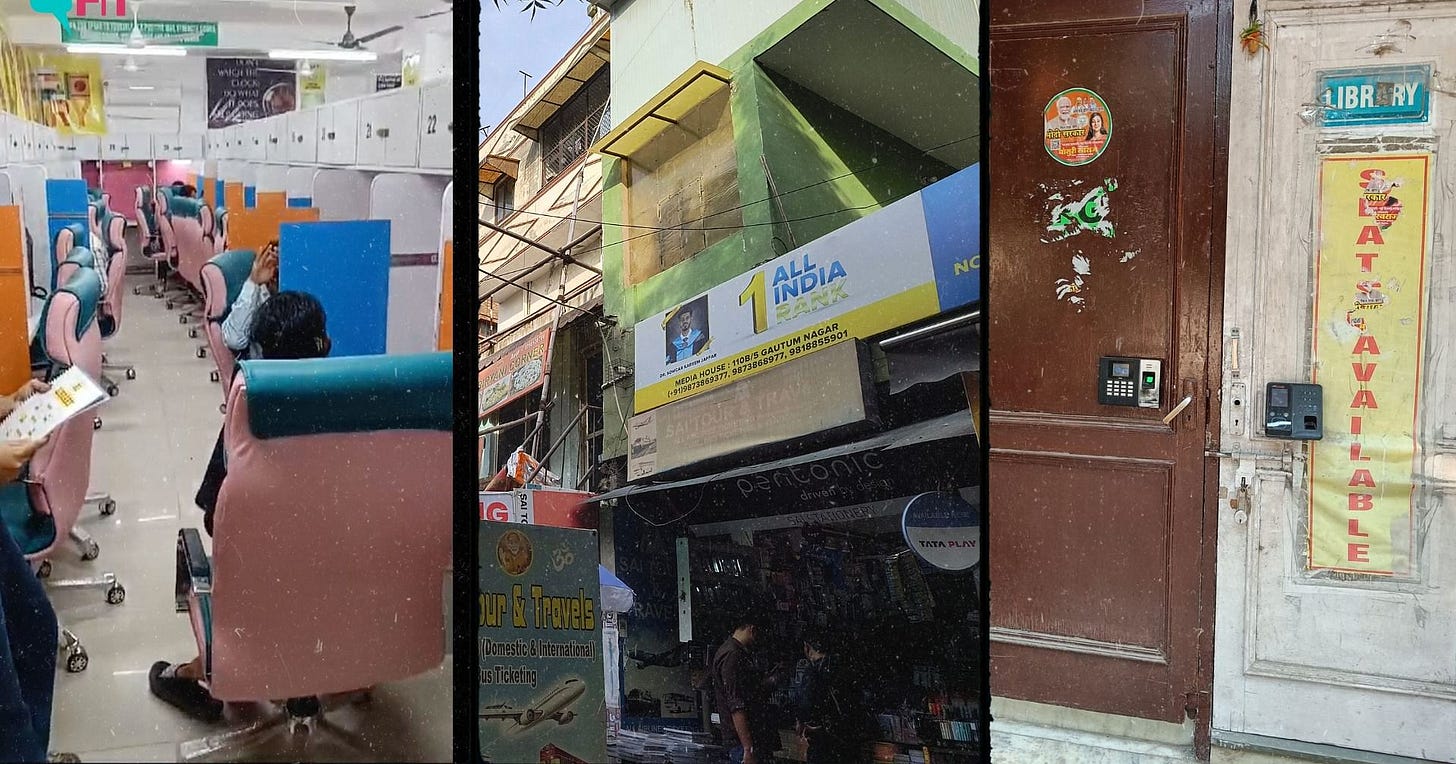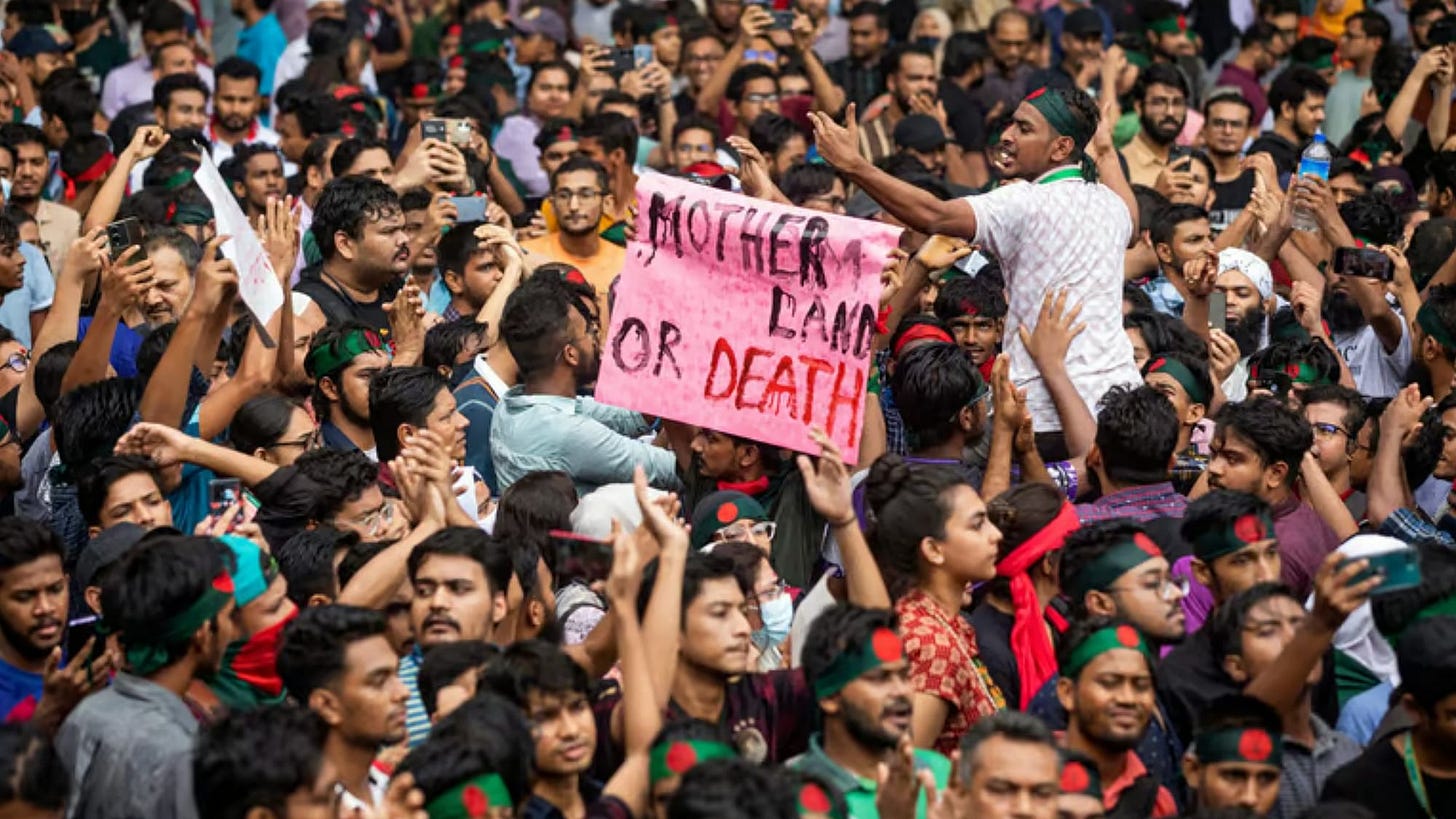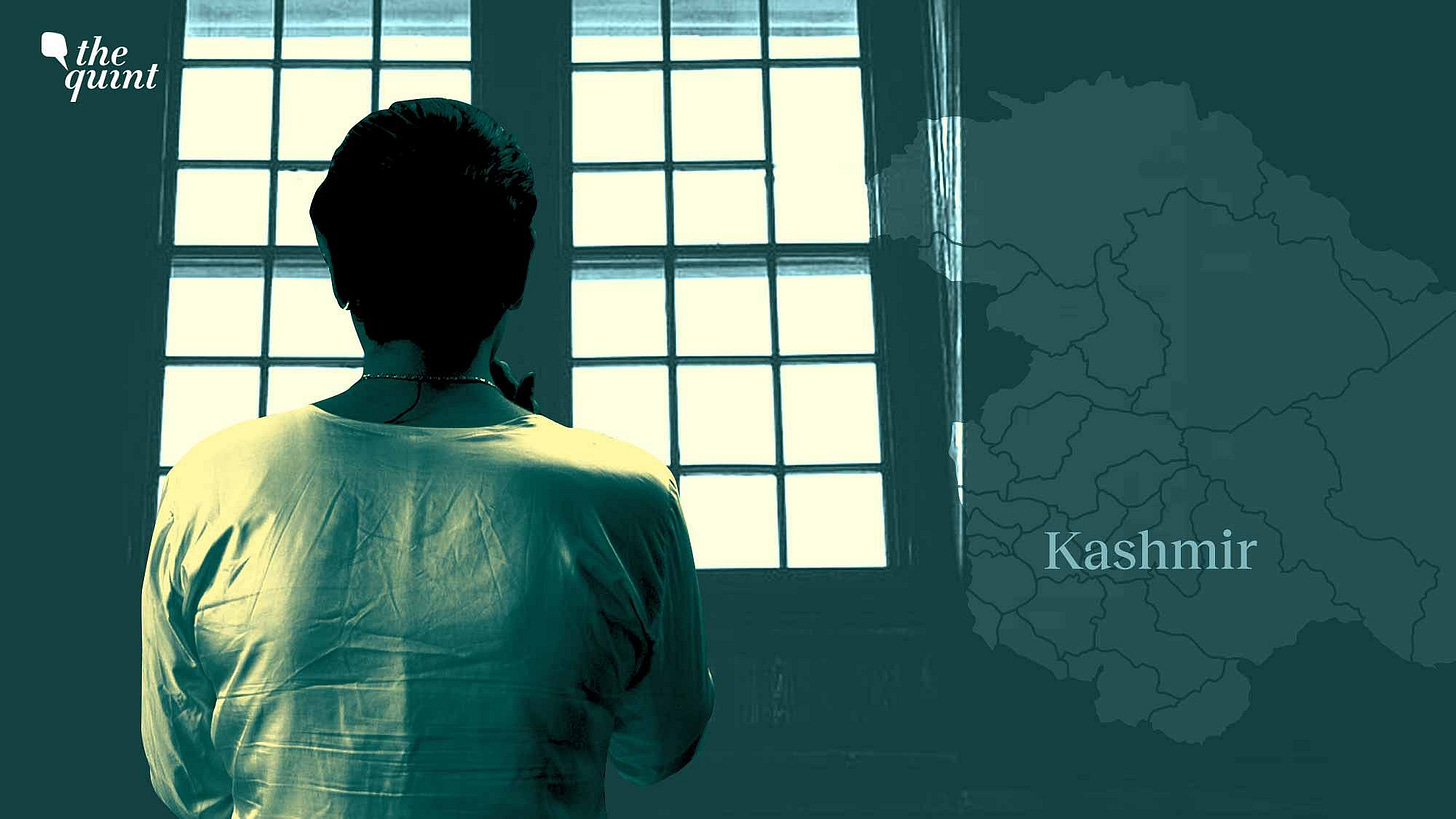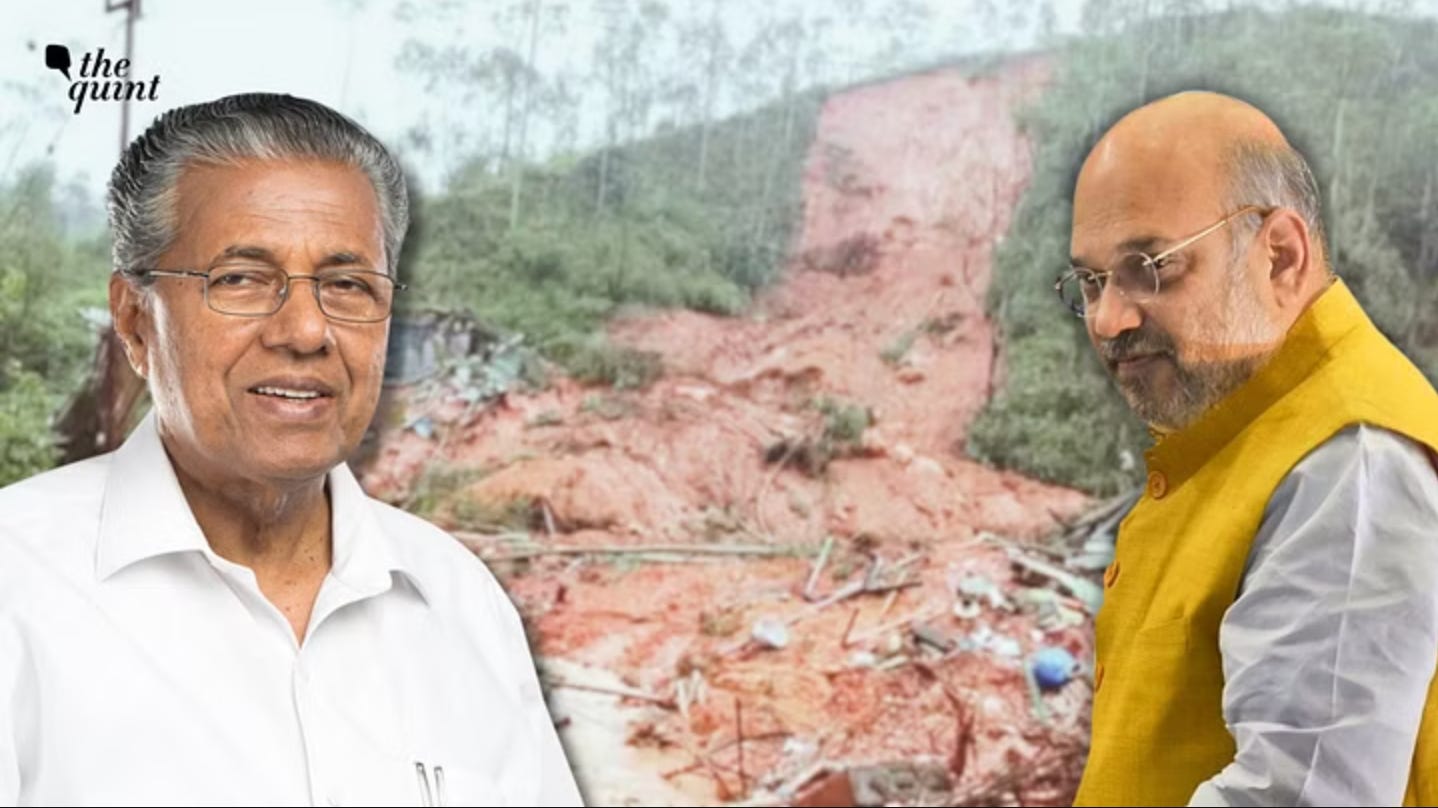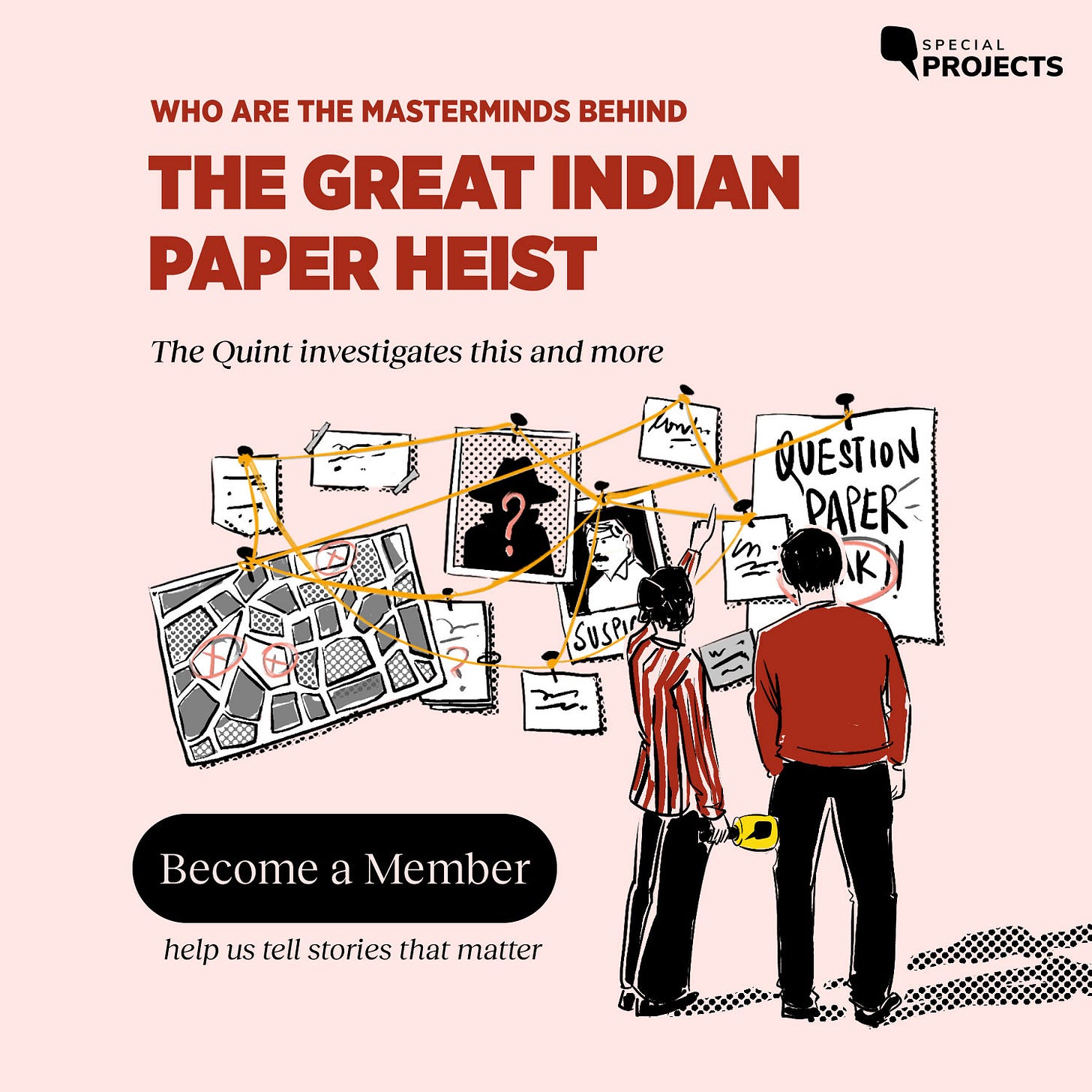Bangladesh Hasn't Seen a Bloodletting of This Magnitude Since the 1971 War
In today's newsletter, we decode the violence in Bangladesh over the weekend – and what it means for India, as well as the violent incidents surrounding Kanwar Yatra this year.
With over 60-65 libraries shut overnight in Delhi's Gautam Nagar, hundreds of medical students – many of whom are preparing for the NEET-PG exam scheduled to take place on 11 August – have been left in the lurch. Anoushka Rajesh spent a day in the area to uncover the ripple effects of the tragic incident at Rau’s IAS coaching centre. In Lucknow, a woman’s harrowing experience of being groped by a mob during heavy rains has sparked outrage. We go beyond the viral video to bring you the full story.
Also, Aliza Noor explains the reasons behind the increasing violence and controversies surrounding the Kanwar Yatra – don’t miss this video! From our archives, we offer a glimpse into the lives of common Kashmiris after the abrogation of Article 370 – five years on. These stories and more – in today’s newsletter!
Law & Order Breakdown
Woman Groped in Posh Lucknow Area: CM Singles Out 2 Men From Over a Dozen
Kanwar Yatra: What's the Reason Behind the Violence and Controversies?
Members Only 🔐
'60-65 Libraries Shut Overnight': In Delhi's Medical Hub, Students Left in Limbo
'War-Like' in Bangladesh
4 Takeaways for India From Youth Uprising Against Sheikh Hasina in Bangladesh
Bangladesh Has Not Witnessed a Bloodletting of This Magnitude Since the 1971 War
From the Archives 📜
Inside Kashmir: A Year Since the Abrogation of Article 370
Forced To Do Sex Work’: How Article 370 Abrogation Changed Lives of Trans Women
Our Most Read
'Kerala Given Early Warning': Checking Amit Shah's Claims on Wayanad Landslides
Today’s Q💡
Find out the answer in our fact-check HERE.
*Already a member of The Quint? What a star! Your support helps us do what we do better.
Also Read:
Want us to cover a story? Write to us at editor@thequint.com.
(Disclaimer: Parts of this newsletter were generated by AI and published after the content was editorially modified and verified by a human based on their judgement and expertise. The Quint does not publish AI-generated content without direct human involvement and oversight).





